In the previous post, we discussed that plastic free is simply not practical because there are too many obstacles in the way (i.e., cost, necessity for some single use items, and ease of use) and that plastic can benefit us (i.e., cost less, more readily available, and jobs). However, there are some plastics that need to be used considerably less or phased out altogether. Many single use plastics are clogging up our landfills, waterways, animals’ bellies and our Earth as a whole. We came up with a list of practical items that are low cost/no cost to implement and easy to use for reducing single use plastics that we use in our homes.
Practical steps to reducing single use plastics:
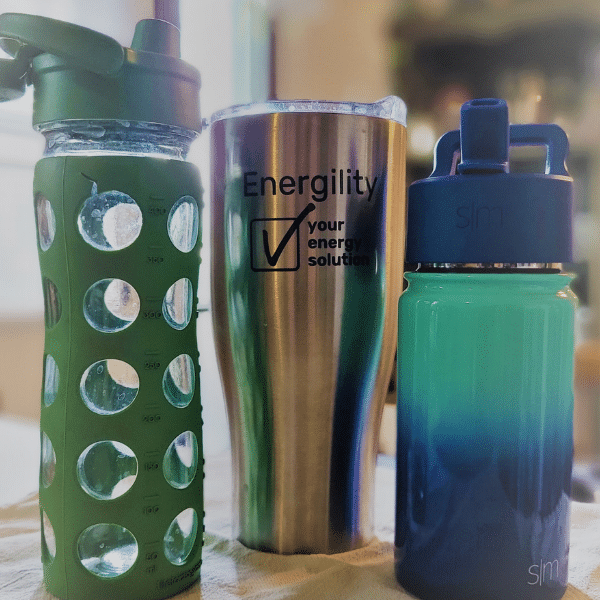 Water bottles +
Water bottles +
Any reusable water bottle whether stainless steel, glass, or reusable plastic is better than one thrown in the trash.
If you must use a single use water bottle, make sure you recycle it.
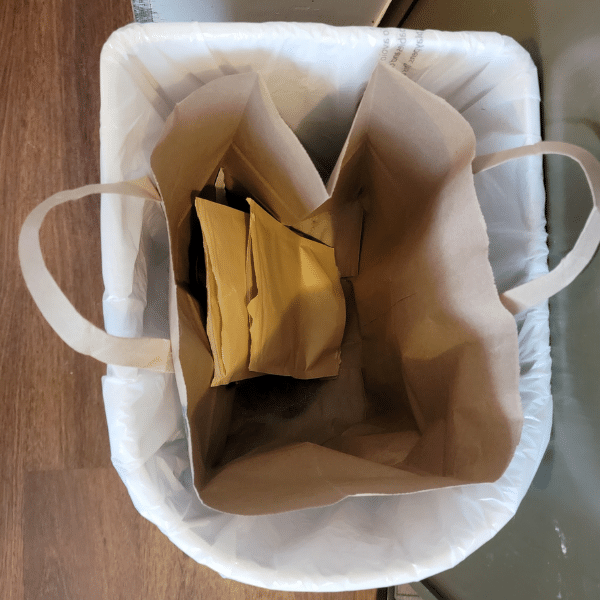 Trash bags
Trash bags
Use your normal plastic trash bag as a liner in your trash can, then place a paper grocery bag inside the plastic bag. Throw away only the paper bag when full of trash. Paper grocery bags are free, just have your groceries packed in paper versus plastic which also reduces the number of plastic bags used. The plastic liner is there in case of spills or leaks.
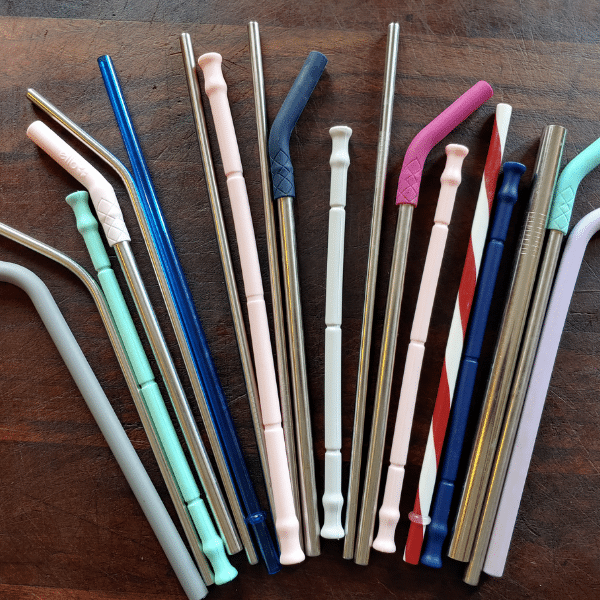 Straws
Straws
Use a reusable straw or no straw at all.
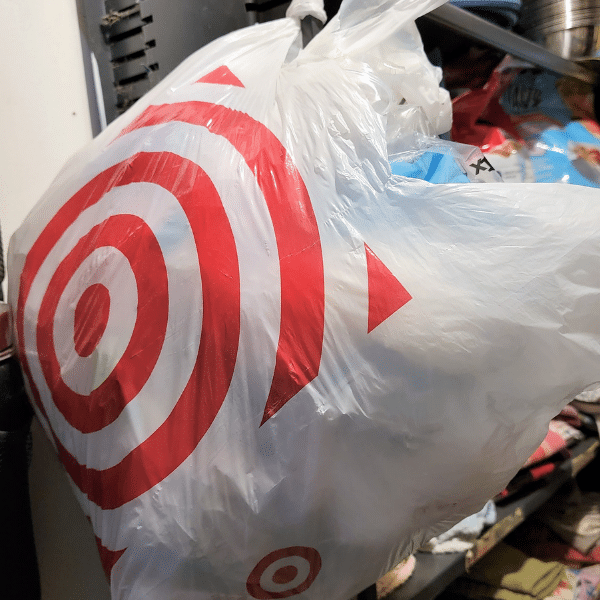 Plastic film
Plastic film
Plastic film is a little trickier because it must be taken somewhere to be recycled, instead of on-site recycling. But most of it is recyclable, including zip top bags, plastic packaging on paper towels and toilet paper, and plastic bread bags.
Where can you recycle these? Look up the nearest location (most are in grocery stores): https://www.plasticfilmrecycling.org/recycling-bags-and-wraps/find-drop-off-location/
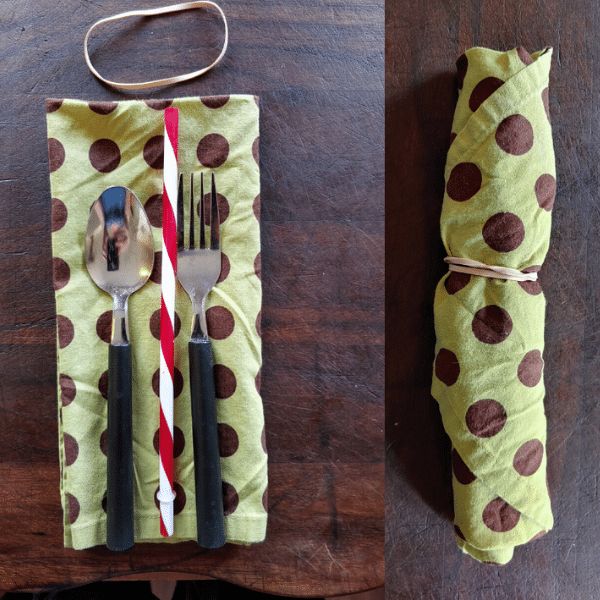 Eating utensils
Eating utensils
When eating take out at home, refuse plastic utensils and use your reusable ones at home. You can also make your own travel packs inexpensively using items from the thrift store.
If you must use disposable utensils, choose compostable items. Commercial composting is available in the central Ohio area and only cost a few dollars a month – check out The Compost Exchange.
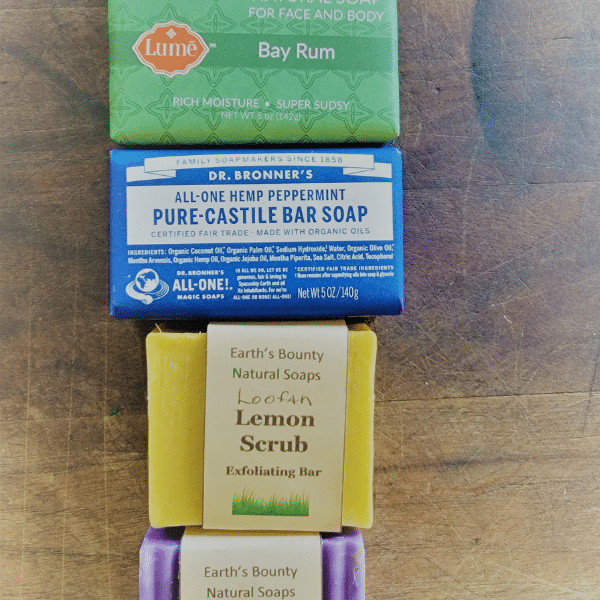 Soap
Soap
Many brands of bar soap can be purchased wrapped in paper or no wrapper at all. Most farmer’s markets have a local soap producer, and the soap typically only has a small paper wrap.
There are bar soaps that can be used for hand washing dishes and diluted to make general purpose cleaning solution.
Dishwasher detergent can be found in paperboard boxes versus plastic jugs.
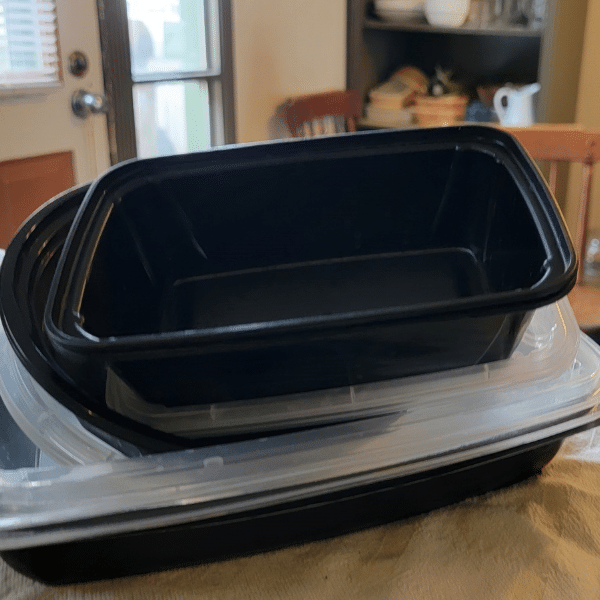 Plastic takeout containers
Plastic takeout containers
When you get takeout in plastic containers, wash and reuse them. They are perfect to send leftovers home in, take to the pool, or pack your lunch in.
The ideas above are more about shifting habits rather than investing in the latest “green” idea. When we look for alternatives to plastics, we have the opportunity to get creative, inspire others, and make a difference in our world.
If you have other ideas, please leave a comment. The more ideas we share, the more we help our environment.
